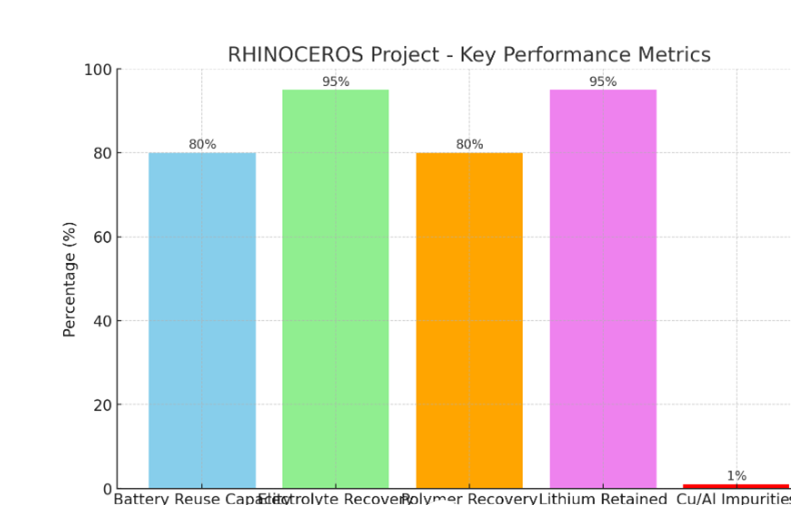BATT4EU Success Stories: Europe’s Battery Recycling Revolution
25 September 2025

BEPA organises a BATT4EU Success Stories webinar to highlight their successes. This is a summary of the first edition
The first Horizon Europe projects focusing on battery research and innovation are entering their final stage since their launch. These projects are grouped under the BATT4EU Partnership, a public-private partnership between the European Commission and the Batteries European Partnership Association (BEPA), the private voice of research and innovation across the battery value chain. BATT4EU counts 64 projects to date, which are delivering ground-breaking results. On June 3rd, BEPA launched a webinar series, BATT4EU Success Stories, to highlight their achievements, starting with RESPECT, RHINOCEROS, FREE4LIB, and BATRAW.
The RESPECT project focuses on recycling EV batteries. The project succeeded in recovering high-purity graphite (95% carbon) from anode scraps and EV modules, with promising results for battery-grade applications. What is striking about this project is that it developed innovative processes to separate graphite from cathode materials, reducing costs and improving efficiency. In addition, it achieved >95% recovery rates for nickel, cobalt, and manganese, and produced high-purity sulfate salts. In the future, it will focus on electrochemical testing, lithium recovery from wastewater, and lifecycle assessments. In essence, the RESPECT project supports the transition to a circular economy where critical resources can be reused, reducing both the ecological footprint of battery production and the reliance on finite, often conflict-ridden, natural resources.
The second project presented, RHINOCEROS, developed criteria and digital tools to automate the selection and dismantling of batteries for reuse. It integrated a digital simulator and sophisticated algorithms to optimise the disassembly process of batteries. The project successfully reused batteries with >80% of their original capacity after three cycles. In the black mass processing, RHINOCEROS obtained >95% electrolyte recovery, >80% polymer recovery, >95% lithium retained and <1% copper/aluminium impurities. During the mechanical dismantling phase, the process demonstrated high efficiency in material recovery. For thermal dismantling, it optimised vacuum pyrolysis at 550°C to effectively remove binders and capture hydrofluoric acid (HF). Moving forward, the project will focus on upscaling the most promising technologies, including detailed engineering design and construction of a pilot plant capable of processing 10 kilos of recycled black mass per day.
FREE4LIB aims to develop sustainable and efficient processes for recycling and supplying lithium batteries, focusing on dismantling, material recovery and reintroduction into the value chain. The project has developed robotic tools for tasks such as lead removal and unscrewing, reducing operator risk and time by 50%. The project created fast, accurate tools for battery state-of-health evaluation and second-life applications, achieved high recovery rates: >70% lithium, 75% nickel, 68% cobalt and developed methods for reusing metals and polymers in new products. In addition, FREE4LIB developed a battery passport platform to enable traceability and lifecycle assessment. As an ongoing activity, the project plans to scale up technologies and validate recycled materials for use in new battery packs.
Last but not least, the BATRAW project focuses on the recycling of end-of-life battery packs for domestic raw material supply and the circular economy. It covered all steps from battery pack reception to repair, second life, and recycling and implemented blockchain-based data sharing for traceability and regulatory compliance. The project achieved ~94% total material recovery from battery packs with 91% yield, <1% Al and <2% Cu impurities. The next challenge lies in designing batteries that are easier to recycle and handling the complexities of battery chemistries. Moving forward, the project will delve into the final validation of recycled materials, optimisation of processes, and dissemination of results.
These are just a few examples of the BATT4EU projects that have been thriving and successful. BEPA will continue to support these initiatives by highlighting more success stories on Monday 29 September, 10:30-11:30, with the second webinar dedicated to the BATT4EU Success Stories, connect to hear about PSIONIC, ADVAGEN and HELENA.

